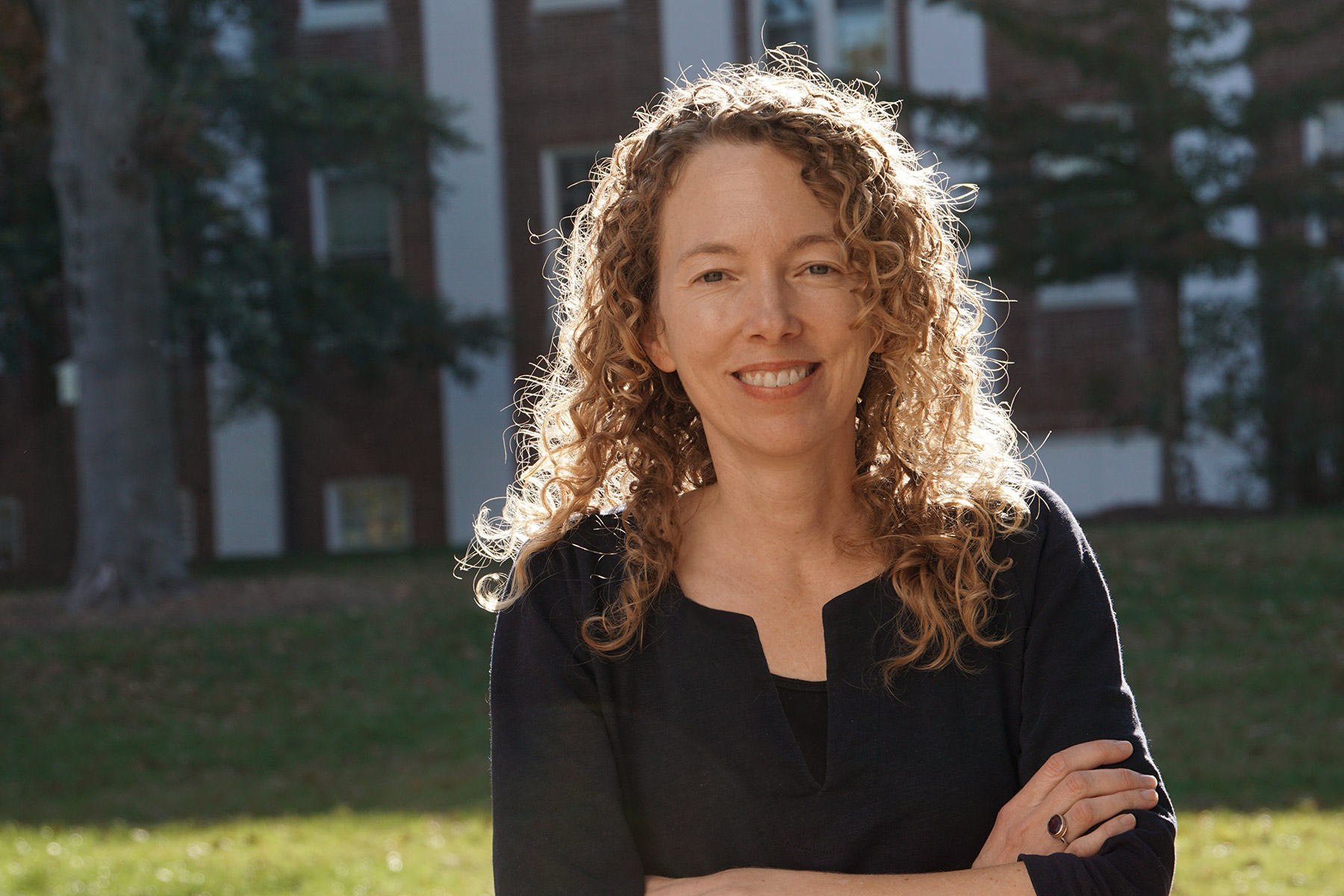When Christine Wooley, Ph.D., first arrived on the campus of Eckerd College this spring, she felt an immediate rush of familiarity.
The Tampa native was back in Florida—after leaving for college 32 years ago—and she was on the campus of a small liberal arts college with engaged students and caring faculty and staff. The visit made it incredibly easy to say yes when she was offered the opportunity to become the College’s next vice president for academic affairs and dean of faculty.
“When I visited Eckerd, I felt such a strong connection to the campus,” says Wooley, who will be leaving her position as the associate dean of curriculum at St. Mary’s College of Maryland to join Eckerd at the start of the fall semester.
“I’m from the area, so that was part of it. But Eckerd felt familiar in other ways. I saw faculty and staff who are dedicated to the liberal arts model of undergraduate education. And the students just blew me away! They were smart and engaged, and they asked such great questions. They showed me the kind of place Eckerd is, and made it so easy to imagine joining the Eckerd community.”
Wooley will become part of the Eckerd executive team after wowing the campus community last May during a national search that brought several stellar candidates through a rigorous interview process. Professor of Philosophy Nate Andersen, Ph.D., and Associate Professor of Biology Liza Conrad, Ph.D., co-chaired the committee leading the monthslong search.
“I am absolutely thrilled that Dr. Wooley will be joining the Eckerd College community,” says President Jim Annarelli, Ph.D. “From the moment I met her, I was impressed by the degree to which she understands both the challenges and the extraordinary opportunities for liberal arts education in the 21st century.”
Wooley joined St. Mary’s College of Maryland as an assistant professor of English in 2005, and her husband, Colby Nelson, Ph.D., has been a part of St. Mary’s English Department since that same year. In addition to being promoted to full professorship, she served St. Mary’s in administrative positions, including chair of the English Department. She was instrumental in curricular development and student support; teaching, learning and equity; and new-student recruitment and transitions as St. Mary’s associate dean of curriculum.
The mother of two—Harper, 14, and Matilda, 10—will bring more than 18 years of teaching and administrative experience to Eckerd College. Although her first higher education job was in student services as an undergraduate at Amherst College, she says she didn’t truly catch the administrative bug until two years into her first postdoctoral position at St. Mary’s College of Maryland.
“In the first couple of years at St. Mary’s, I began to feel like there is work that the department can do better for the student,” Wooley explains. “From that point on, I found myself drawn into, or even sometimes looking for, ways to shape the community a little more intentionally and to work with those others—students, faculty and staff—who were really trying to make the institution work for as wide a range of people as possible.”
That drive toward inclusivity is part of her scholarship as well. As a Master of Arts and Ph.D. student at the University of Washington, she was drawn to works by Black authors such as W.E.B. Du Bois, Charles Chesnutt and Paul Laurence Dunbar, who were using literature to explore—and potentially intervene in—the social and economic inequality experienced by Black Americans.
“When I went to grad school, I quickly found that the work I was drawn to was work that engaged with these discrepancies between what the United States claims and what actually happens to its citizens,” Wooley describes. “I was particularly drawn to works that sought to exploit the reader’s experience and their sympathy. Black writers from the late-19th and early-20th centuries were still working with some of these ideas about sympathy, but they were also interested in showing us the limits of what sympathy could do. So these writers were trying to give insight into what happens when sympathy breaks down or its impacts don’t create the kind of change that the writers were very much invested in.”
With that understanding, Wooley found ways to improve inclusion at St. Mary’s through teaching and learning. She worked with colleagues to make sure curricula didn’t focus only on what was taught but also on how it was taught, based on the learning styles and knowledge of the diverse student population. The creative solutions included a cluster hiring of faculty focused on inclusive pedagogy. This approach allows for a more supportive environment for new faculty committed to pursue such work, and develops ways to make sure their expertise is shared with others on campus.
At Eckerd, Wooley says she plans to take her time to truly understand the institution before she moves toward her ultimate goal to improve the student experience at the College.
“I think for any administrator—particularly at a liberal arts college—you cannot lose sight of the fact that your work, although it shifts to being more intensely collaborative with faculty and staff, is in the service of the students and their learning. Our job is to support them as they figure out how they are going to get the most out of their college experience and explore what they want to do next,” Wooley explains. “I think to do this work well, you have to keep a tight focus on that as the purpose of your work.”
Wooley will assume the role of vice president for academic affairs and dean of faculty on Sept. 1, but she plans to take part in the Executive Staff retreat and the first-year welcoming program, Ceremony of Lights, in August—before her official start date.
“Dr. Wooley’s acceptance is a testament to the attractiveness of leading our outstanding academic program and the result of the tremendous work accomplished by the search committee,” Annarelli adds. “I know with Christine at the helm, our academic program will be led to new heights, and I am excited to begin our work together.”













